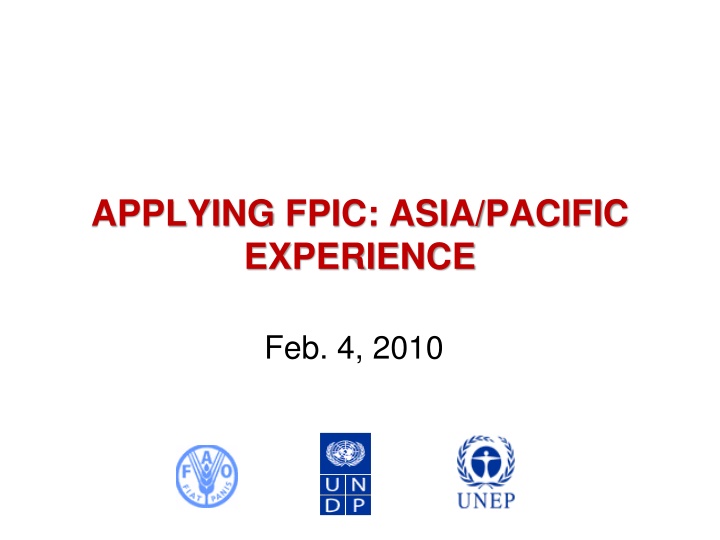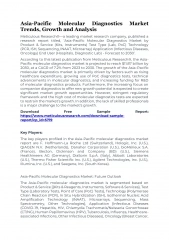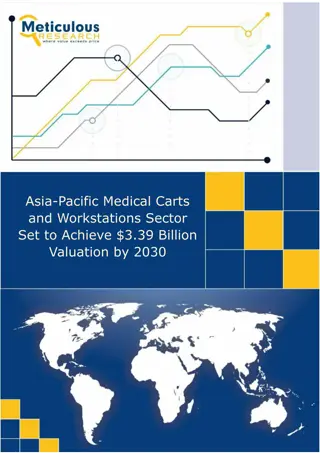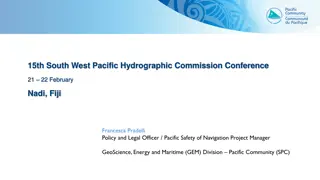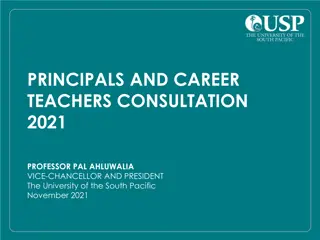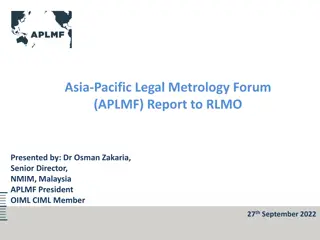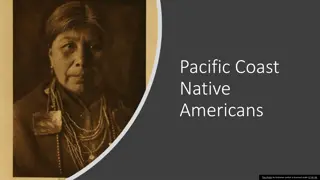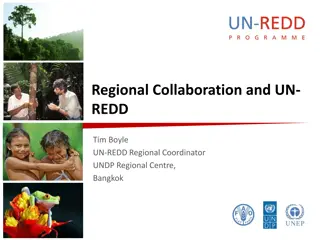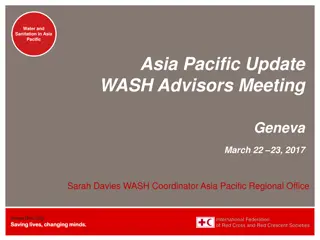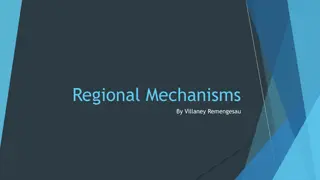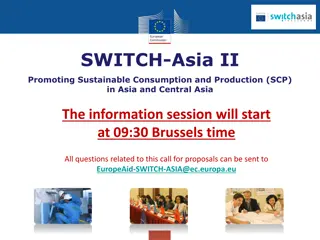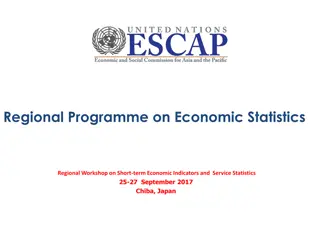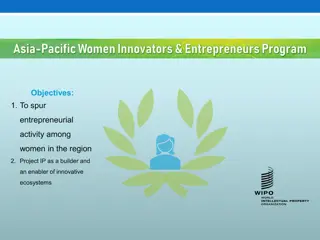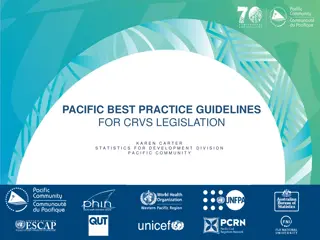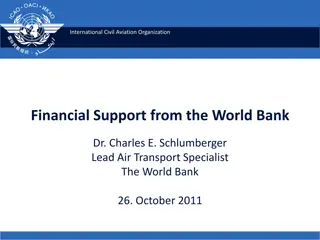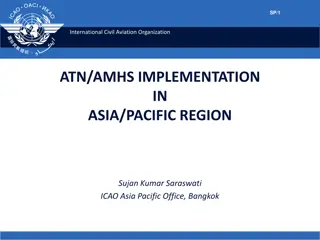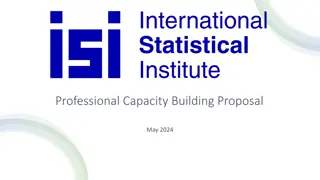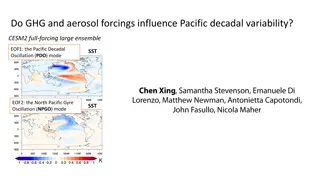Applying FPIC: Asia Pacific Experience
Vietnam, with its diverse ethnic groups, faces challenges in implementing FPIC (Free, Prior, and Informed Consent). Past policies have influenced the distribution of ethnic minorities and poverty alleviation efforts. The principles of UNDRIP guide the FPIC process, emphasizing community engagement and avoiding assumptions of homogeneity. In Lam Dong province, the FPIC process involves full village consent and thorough documentation for various activities such as mining and forced migration. Key issues include determining the unit of consent and representation. The proposed process outlines steps from preparation to verification for effective implementation.
Download Presentation

Please find below an Image/Link to download the presentation.
The content on the website is provided AS IS for your information and personal use only. It may not be sold, licensed, or shared on other websites without obtaining consent from the author.If you encounter any issues during the download, it is possible that the publisher has removed the file from their server.
You are allowed to download the files provided on this website for personal or commercial use, subject to the condition that they are used lawfully. All files are the property of their respective owners.
The content on the website is provided AS IS for your information and personal use only. It may not be sold, licensed, or shared on other websites without obtaining consent from the author.
E N D
Presentation Transcript
APPLYING FPIC: ASIA/PACIFIC EXPERIENCE Feb. 4, 2010
Background to Viet Nam Vietnam has 53 dan toc, toc or toc nguoi (= ethnic minority groups ) belonging to eight language groups. Population of ethnic minorities is about 16 million (Viet Nam = 88 million) Most of these ethnic groups live in mountainous, highly forested areas, only 3/53 live mainly on the plain (Hoa, Cham and Khmer)
Past policies State-sponsored internal migration; mainly Kinh into remote areas; but also ethnic minorities Lam Dong pilot districts: 23 ethnic minorities; of which, only 2 are indigenous Poverty alleviation programmes have tended to positively discriminate ethnic minorities
Principles UNDRIP does not create rights not already enjoyed by non-indigenous groups This means FPIC is for all forest/forest- margin communities Must go to communities, not have them come to you Must not assume homogeneity all communities
Lam Ha District 10 Communes Average of 10 villages per commune 100 villages
Principles Full FPIC every village, exhaustive information, documented consent Mining lands/ Cut forest for oil palm/ Forced migration FPIC-light sample of villages, summary, assume consent unless stated Provide training/ Build capacity for new income opportunities
Key Issues Unit of consent Representation Process Record of consent (or otherwise) Interpretation of results
A typical village in the Central Highlands Kinh M nong E-de
Proposed process Step 0: Preparation Step 1: Consultation with local officials Step 2: Recruit interlocutors Step 3: Train interlocutors Step 4: Consultation with village heads Step 5: Village meetings Step 6: Record decision Step 7: Interlocutors report to UN-REDD Step 8: Verification and evaluation
Proposed process Step 0 Prior to the actual FPIC process beginning, some preparatory work is required. This will include: The preparation of a summary of the legal basis for local community engagement/FPIC in Viet Nam The preparation of communications materials Advance consultation with provincial and district authorities on the proposed process Short-term consultants will be hired to undertake these activities.
Step 1 The UN-REDD programme will organize one or more awareness-raising events for provincial, district and commune leaders to ensure that the principles guiding the UN-REDD programme and district-level activities are understood. District and commune leaders will come only from pilot Districts. As part of the awareness raising event, a brief document explaining the meaning of REDD and activities of the UN-REDD programme will be prepared (during Step 0) for distribution. The provincial, district and commune leaders will also review the proposals for steps 2-7.
Step 2 The UN-REDD programme will recruit sufficient interlocutors to guide the consultation process in each ethnic minority village in Lam Ha and Di Linh districts. The interlocutors will not be government officials, and each interlocutor will be fluent in at least one of the languages of the ethnic minorities in Lam Ha and Di Linh districts, such that all ethnic minority languages are represented. The recruitment process may be assigned to an NGO.
Step 3 The UN-REDD programme will organize a training event for the interlocutors to ensure that they are fully familiar with the anticipated results and activities of the UN-REDD programme and the principles guiding consultations necessary to secure free prior informed consent. As part of this training event, the UN-REDD programme will arrange for the document used in Step 1 to be translated into ethnic minority languages for those ethnic minorities which are literate in their own language, but not literate in Vietnamese.
Step 4 Each interlocutor will be assigned a number of villages of ethnic minorities in whose language they are fluent. Those villages with more than one ethnic minority may require more than one interlocutor. Each interlocutor might be responsible for about 10 villages. Each interlocutor (or interlocutors) will contact the village head to organize an awareness-raising event at a location and at a time that is mutually acceptable to all village heads. At these events the interlocutors will explain the meaning of REDD and proposed activities of the UN-REDD programme, using the document prepared in Step 3. They will also agree the form and timing of events to engage the villagers in each village (for example, whether a single village meeting or multi-stage process is required).
The need for broad representation of all stakeholder groups (male/female, young/old, etc.) at the village meetings/events will be emphasized, and arrangements made for the meeting/event to be announced over several days through the village loud speaker system.
Step 5 The interlocutor(s) will attend the village meeting(s) at the time(s) established in Step 4. At each meeting, the interlocutor(s) will explain the meaning of REDD and the proposed activities of the UN-REDD programme, using the document prepared in Step 3 if the villagers are literate. The interlocutor(s) will answer questions and then retire to allow the villagers to discuss whether they are prepared to provide their consent, or return at an agreed later date for this purpose. At the initial meeting, a Comments Box will be provided, and collected at a later date, to allow any villager to make anonymous observations on the process.
Step 6 Having reached consensus, the villagers will prepare a document, using a template prepared by the UN-REDD programme, indicating either their consent or non- consent. The document will be signed by the village head and will indicate that the decision was reached by consensus. The names, sex, ages, ethnic group, and occupation (if any) of each participant in the village meeting will be recorded in an annex to the document.
Step 7 The document recording consent or non-consent of each village will be provided to the UN-REDD programme by each interlocutor, who will also prepare and submit a report summarizing the consultations, highlighting any concerns as to whether there was evidence of coercion or pressure having been brought to bear on the villagers.
Step 8 Independent verification of the FPIC process will be secured by contacting an independent, international organization with specialization in the area of forest- community interactions. The contracted organization will be provided with all records on the process, and will be invited to interview interlocutors, local and central government officials, and local stakeholders to:
Assess whether the process has met the principles of FPIC, If not, generate recommendations for improvements that need to be made in order to secure FPIC, Assess the cost-effectiveness of the process, and advise as to opportunities to reduce costs and/or time while retaining effectiveness of the process
Record of consent (or otherwise) I [insert name] , in my capacity as village head of [insert name] village, confirm that the aims and activities of the UN-REDD programme have been presented to the villagers named in Annex 1, attached, on [insert date(s)] . We have had the opportunity to discuss the aims and activities of the UN-REDD programme, and have reached the following conclusions:
The process by which the aims and activities of the UN- REDD programme have been presented to us has been/has not been [delete one] free from coercion, intimidation or manipulation; The process by which the aims and activities of the UN- REDD programme have been presented to us has/has not [delete one] taken place prior to any of the proposed activities being undertaken; We have been/have not been [delete one] provided with sufficiently clear and complete information to allow us to reach agreement; and On this basis, we do/do not [delete one] consent to the proposed activities taking place.
Our additional comments on each of these points, and on the proposed aims and activities of the UN- REDD programme, are provided in Annex 2 to this document. Signed At: .. On:
Name Sex Age Occupation Signature/ mark/thumb- print
Interpretation of results a) For those activities that do not involve engagement with individual villages (e.g., training of local government officials) any negative comments will be noted; if such comments are rare and/or minor, the activities will proceed as planned; if they are serious and consistent, the basis for the activities will be reconsidered
Interpretation of results b) For those activities that do involve engagement with individual villages, and for which collective commitment from villages is not required, (e.g., training, awareness raising), activities will proceed only in those villages from which consent was secured
Interpretation of results a) For those activities that involve engagement with individual villages, but for which a collective commitment is required (e.g., capacity building for mainstreaming REDD into planning; or systematic sampling for carbon density estimation), the basis for withholding of FPIC will be analyzed; the proposed activities will be re-designed in the light of the withholding of consent, and the process of securing FPIC re-initiated
Timeline 0 10 20 30 40 50 60 70 Undertake legal analysis Initial discussions with Lam Dong Communications materials Recruit facilitators Tet (New Year) Lam Dong provincial workshop District workshops Village meetings Collection of results Independent verification
